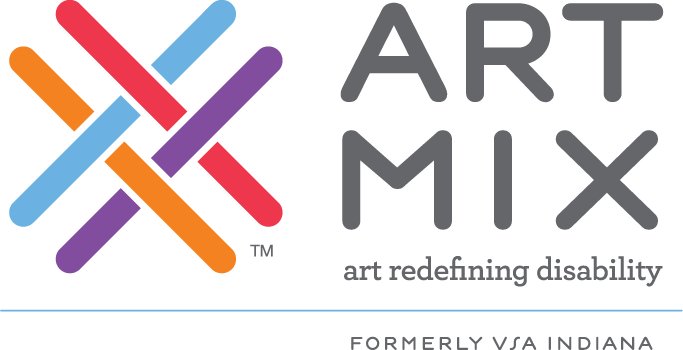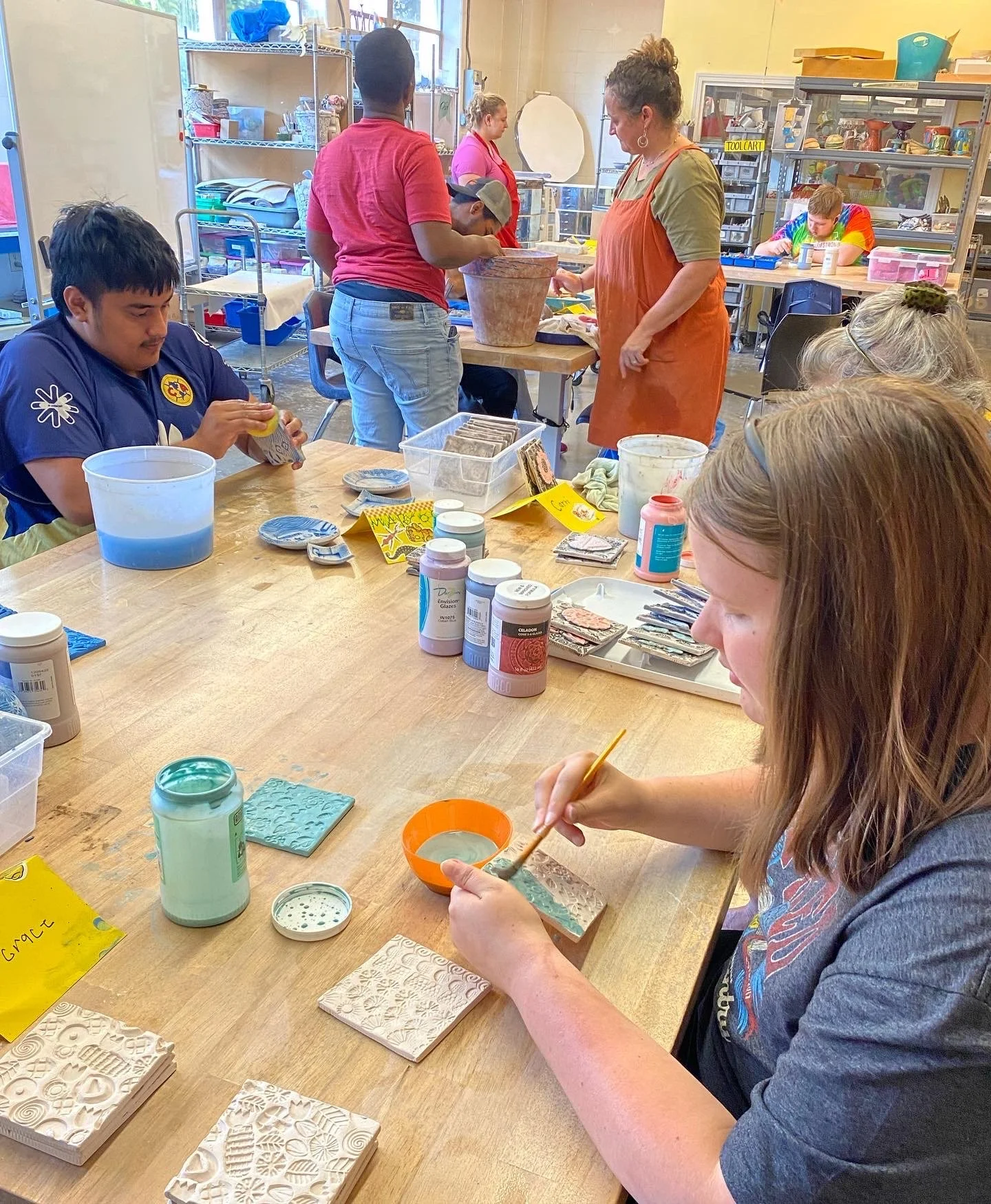Our Frequently Asked Questions
-
Yes!
ArtMix’s mission is true inclusivity regardless of ability. Our studios and gallery are spaces where people with and without disabilities can work and learn in collaboration and community.
If you are interested in signing up forsbryant@artmixindiana.org classes or have further questions, either visit our What We Do page or email our VP of Programs, Sarah Jane Bryant at sbryant@artmixindiana.orgsbryant@artmixindiana.org
-
On the first Friday of each month, galleries, studios, and culturally-oriented businesses celebrate the arts across Indianapolis. ArtMix opens its doors to the public for an arts celebration each First Friday of the month, alongside the Harrison Center. This event features the gallery opening for our featured artist, new artwork for sale, art events in our studios, and a good time!
First Friday is always on the first Friday of each month, from 6-9 pm. Everyone is invited!
You can learn more on our First Fridays page.
-
The ArtMix gallery sells products from our classes and community. This includes works from our Urban Artisans, Independent Artists, and Featured Artists.
Products include functional and decorative ceramics, paintings, sculptures, cards, wall hangings, jewelry, and more! Proceeds from the gallery go back into our organization to help support and fund our classes!
-
Since our gallery is not a typical retail store, we offer shopping hours by appointment only. Our gallery is located in the Harrison Center at 1505 N. Delaware Street. To set up an appointment you can fill out the contact form on our website, email our gallery Director, Molly Wolfe, at molly@artmixindiana.org, or call (317) 451- 9485.
A shopping appointment is necessary in order for us to have the staff, and space to accommodate you around our class schedule.
We are also open every First Friday from 6-9 pm!
-
We love doing custom orders! Our Urban Artisans are constantly working hard to complete projects for our clients.
If you have a custom order you would like to request, please fill out the contact form on our website, or email our Gallery Director, Molly Wolfe, at molly@artmixindiana.org to check if commissions are open!
-
ArtMix partners with several stores in the Indianapolis area to sell our products. Currently, we sell artwork at Noble Made Gift Shop, The President Benjamin Harrison Home, Marigold, Newfields Art and Garden Shop, High-Frequency Arts, The Indiana Historical Society and More!
If you are interested in selling ArtMix's work in your store please contact our Gallery Manager, Molly Wolfe, at molly@artmixindiana.org
-
The Universal Design for Learning (UDL) is a framework used to optimize teaching and learning for all people based on scientific insights into how humans learn. The core tenets of UDL are a great place to start when thinking of ways to increase the accessibility and inclusivity of your organization.
Some of the tenets of UDL include: learner variability is the norm (there are many different paths to reach the same goal); emphasize learner engagement and choice; identify barriers to access (e.g. only providing one language option); and identify creative alternative routes to access (e.g. adding curb cuts to make sidewalks accessible to wheels).
Overall, it’s important to think about designing your programs so that they benefit everyone. For more information, you can contact our VP of programs, Sarah Jane, at sbryant@artmixindiana.org
-
Person-first language is a way to emphasize the person and view the disorder, disease, condition, or disability as only one part of the whole person. Describe what the person “has” rather than what the person “is.”
Person-first language avoids using labels or adjectives to define someone, e.g., a person with diabetes, not a diabetic; or a person withcancer, not a cancer patient; or a person with bipolar disorder not, a bipolar person.
-
Section 501(c)3 of the Internal Revenue Code is a law that allows charitable organizations to be exempt from taxes. In order to be certified for 501(c)3 status, an organization must be organized and operated for charitable, religious, educational, scientific, or literary purposes. Additionally, a 501(c)3 organization may not attempt to influence legislation and may not participate in any campaign activity for, or against, political candidates.
ArtMix is a certified 501(c)3 organization. Under this code, we are a not-for-profit organization, so any revenue we gain goes to the improvement and support of our programs and participants.
-
We are always welcoming more members of our community into ArtMix! Here are several ways you can join and contribute to our mission:
If you are in artist and would like to become a Teaching Artist, reach out to Sarah Jane, our VP of Programs, to see how we can fit you into our organization!

